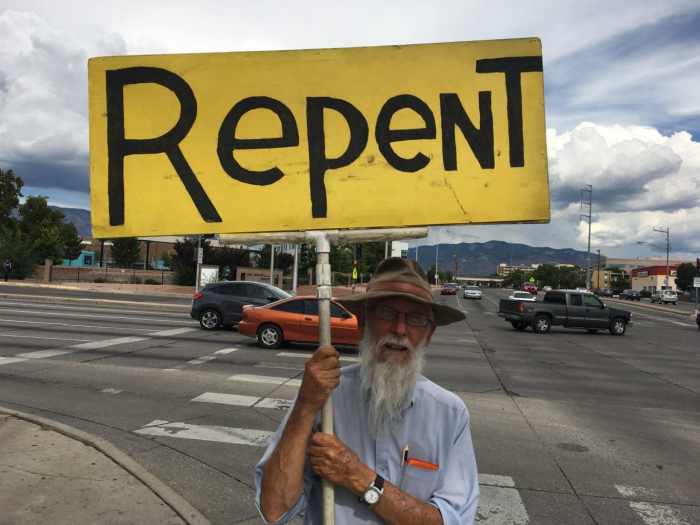Seek forgiveness for sins crossword – The act of seeking forgiveness for sins holds profound significance across cultures and religions, inviting introspection, reconciliation, and spiritual growth. This multifaceted concept has inspired countless literary and artistic works, revealing the complexities of human nature and the transformative power of forgiveness.
This discourse delves into the religious, cultural, and psychological dimensions of seeking forgiveness, examining its role in fostering social harmony, alleviating emotional burdens, and facilitating spiritual redemption.
Religious Context of Seeking Forgiveness for Sins
Seeking forgiveness for sins holds immense significance in various religions, as it is believed to bring individuals closer to the divine and promote spiritual growth.
In Christianity, the concept of seeking forgiveness is central to the faith. Believers confess their sins to God through prayer and repentance, seeking absolution and reconciliation. The practice of confession is often seen as a means of restoring one’s relationship with God and receiving divine grace.
Atonement and Forgiveness
In many religions, the concept of atonement plays a crucial role in the process of forgiveness. Atonement refers to the actions or sacrifices made to reconcile with a deity or wronged party. In Christianity, the sacrifice of Jesus Christ is considered the ultimate act of atonement, which provides forgiveness for the sins of humanity.
In Hinduism, the concept of karma and reincarnation is closely tied to seeking forgiveness. Individuals are believed to reap the consequences of their actions in this life and future lives. Seeking forgiveness from those who have been wronged can help mitigate the negative effects of past actions and promote spiritual evolution.
In Buddhism, the practice of confession and repentance is seen as a means of purifying oneself from negative actions and thoughts. Through meditation and self-reflection, individuals acknowledge their wrongdoings and strive to develop compassion and wisdom.
Cultural and Societal Perspectives on Seeking Forgiveness
Across cultures and societies, seeking forgiveness holds profound significance. Cultural norms and expectations shape the ways in which individuals apologize, accept apologies, and engage in reconciliation processes. Forgiveness plays a pivotal role in maintaining social harmony, repairing damaged relationships, and promoting personal and communal well-being.
Societal attitudes towards forgiveness have evolved over time, influenced by religious beliefs, philosophical perspectives, and social norms. In many cultures, forgiveness is considered a virtue that fosters reconciliation and promotes social cohesion. However, in other contexts, forgiveness may be viewed with skepticism or seen as a sign of weakness.
Cultural Norms and Expectations
Cultural norms and expectations surrounding seeking forgiveness vary widely. In some cultures, it is customary to apologize profusely and engage in elaborate rituals to demonstrate sincerity. In other cultures, apologies may be more understated and indirect. The form and manner of apology are often influenced by factors such as the severity of the offense, the relationship between the parties involved, and the cultural context.
Role of Forgiveness in Social Relationships
Forgiveness plays a crucial role in repairing damaged social relationships. By acknowledging and accepting an apology, individuals can move beyond past grievances and rebuild trust. Forgiveness can also help to reduce feelings of anger, resentment, and bitterness, which can be corrosive to relationships.
Evolution of Societal Attitudes towards Forgiveness
Societal attitudes towards forgiveness have undergone significant changes over time. In many traditional societies, forgiveness was seen as a necessary component of social order and harmony. However, in modern societies, forgiveness is sometimes viewed with skepticism or seen as a sign of weakness.
This shift in attitudes may be due to factors such as increased individualism, the rise of secularism, and the influence of mass media.
Psychological and Emotional Aspects of Seeking Forgiveness

Seeking forgiveness can have significant psychological and emotional benefits. It can alleviate guilt, reduce anxiety, and promote a sense of closure and well-being. By acknowledging and addressing wrongdoing, individuals can free themselves from the burden of shame and remorse.
Emotional Challenges and Barriers to Seeking Forgiveness
Despite its potential benefits, seeking forgiveness can be emotionally challenging. Some common barriers include:
- Fear of rejection or judgment
- Pride and ego
- Shame and guilt
- Fear of vulnerability
- Difficulty acknowledging wrongdoing
Coping with Guilt and Shame Related to Sins
Guilt and shame are common emotions associated with sins. To cope with these emotions effectively, individuals can:
- Acknowledge and accept responsibility for their actions
- Practice self-compassion and forgiveness
- Seek support from trusted individuals or professionals
- Engage in meaningful activities that promote self-worth
- Remember that forgiveness is not condoning wrongdoing but rather a path to healing and reconciliation
Practical Approaches to Seeking Forgiveness

Seeking forgiveness is a multifaceted process that can be approached in various ways. Each method has its own advantages and considerations.
Direct Apology, Seek forgiveness for sins crossword
Apologizing directly to the person you have wronged is often considered the most sincere and effective way to seek forgiveness. This approach allows you to express your remorse in person and provide an opportunity for the other party to ask questions or share their feelings.
Written Apology
A written apology, such as a letter or email, can be a thoughtful and well-crafted way to convey your remorse. It provides time for reflection and allows the recipient to read and process your apology at their own pace. However, it lacks the personal touch and immediate feedback of a direct apology.
Seeking Forgiveness through a Religious Leader or Therapist
In some cases, seeking forgiveness through a religious leader or therapist can be beneficial. These individuals can provide guidance, support, and facilitate communication between you and the person you have wronged. They can also offer a safe and confidential space for expressing remorse and seeking reconciliation.
Biblical References to Seeking Forgiveness for Sins: Seek Forgiveness For Sins Crossword

Seeking forgiveness for sins is a central theme throughout the Bible. Key passages that address this topic include:
- Psalm 51:David’s heartfelt plea for forgiveness after his sin with Bathsheba, emphasizing the importance of repentance and confession.
- Isaiah 55:7:God’s call to the wicked to forsake their sins and seek His forgiveness, promising mercy and grace.
- Matthew 6:12:Jesus’ teaching on the Lord’s Prayer, which includes the request for forgiveness of sins.
- John 3:16:God’s love and provision for forgiveness through Jesus Christ, who died to pay the penalty for our sins.
The process of seeking forgiveness involves:
- Repentance:A genuine change of heart, turning away from sin and towards God.
- Confession:Acknowledging and admitting our sins to God, as well as to those we have wronged.
- Grace:God’s unmerited favor and forgiveness, which is extended to all who seek it through faith in Jesus Christ.
Examples of biblical characters who sought forgiveness and the consequences of their actions:
- David:After his sin with Bathsheba, David repented and sought forgiveness, experiencing both God’s discipline and mercy.
- Manasseh:The wicked king of Judah who humbled himself and sought God’s forgiveness, leading to his restoration.
- Peter:After denying Jesus three times, Peter repented and received forgiveness, becoming a pillar of the early church.
Seeking forgiveness for sins is crucial for restoring our relationship with God and experiencing His grace. It involves a genuine desire for change, humility in acknowledging our wrongs, and faith in God’s promise of forgiveness through Jesus Christ.
Literary and Artistic Depictions of Seeking Forgiveness
Literature, art, and film have played a profound role in exploring the complex and multifaceted theme of seeking forgiveness. These creative works offer unique insights into the human experience of forgiveness, providing a nuanced understanding of its psychological, emotional, and spiritual dimensions.
Symbolism and Metaphor in Depictions of Forgiveness
Literary and artistic works often employ symbolism and metaphor to depict the act of seeking forgiveness. In literature, the use of imagery and figurative language can create a vivid and evocative portrayal of the emotional journey involved in seeking forgiveness.
For instance, in the novel The Great Gatsbyby F. Scott Fitzgerald, the protagonist Gatsby’s relentless pursuit of the elusive Daisy Buchanan symbolizes his desire for redemption and forgiveness.
In art, symbolism is frequently used to represent the complexities of forgiveness. In the painting The Penitent Magdaleneby Caravaggio, the figure of Mary Magdalene is depicted as a woman overwhelmed by guilt and seeking absolution. The use of chiaroscuro (contrasting light and shadow) highlights the inner turmoil and emotional struggle associated with seeking forgiveness.
Examples of Literary, Artistic, and Film Depictions of Seeking Forgiveness
- Literature:
- The Scarlet Letterby Nathaniel Hawthorne
- Crime and Punishmentby Fyodor Dostoevsky
- The Color Purpleby Alice Walker
- Art:
- The Penitent Magdaleneby Caravaggio
- The Prodigal Sonby Rembrandt
- The Forgivenessby Paul Gauguin
- Film:
- Schindler’s Listby Steven Spielberg
- The Shawshank Redemptionby Frank Darabont
- Million Dollar Babyby Clint Eastwood
These literary, artistic, and film works offer a diverse range of perspectives on seeking forgiveness, highlighting its transformative power, the challenges it poses, and the profound impact it can have on individuals and society.
Question & Answer Hub
What are the key religious practices related to seeking forgiveness?
Religious practices for seeking forgiveness vary across traditions, but common elements include confession, repentance, prayer, and atonement.
How does forgiveness contribute to social relationships and reconciliation?
Forgiveness can mend broken relationships, foster empathy, and create a foundation for reconciliation. It promotes healing, reduces conflict, and strengthens social bonds.
What are the psychological benefits of seeking forgiveness?
Seeking forgiveness can alleviate guilt, reduce stress, improve self-esteem, and promote emotional well-being. It allows individuals to take responsibility for their actions and move forward with a clearer conscience.